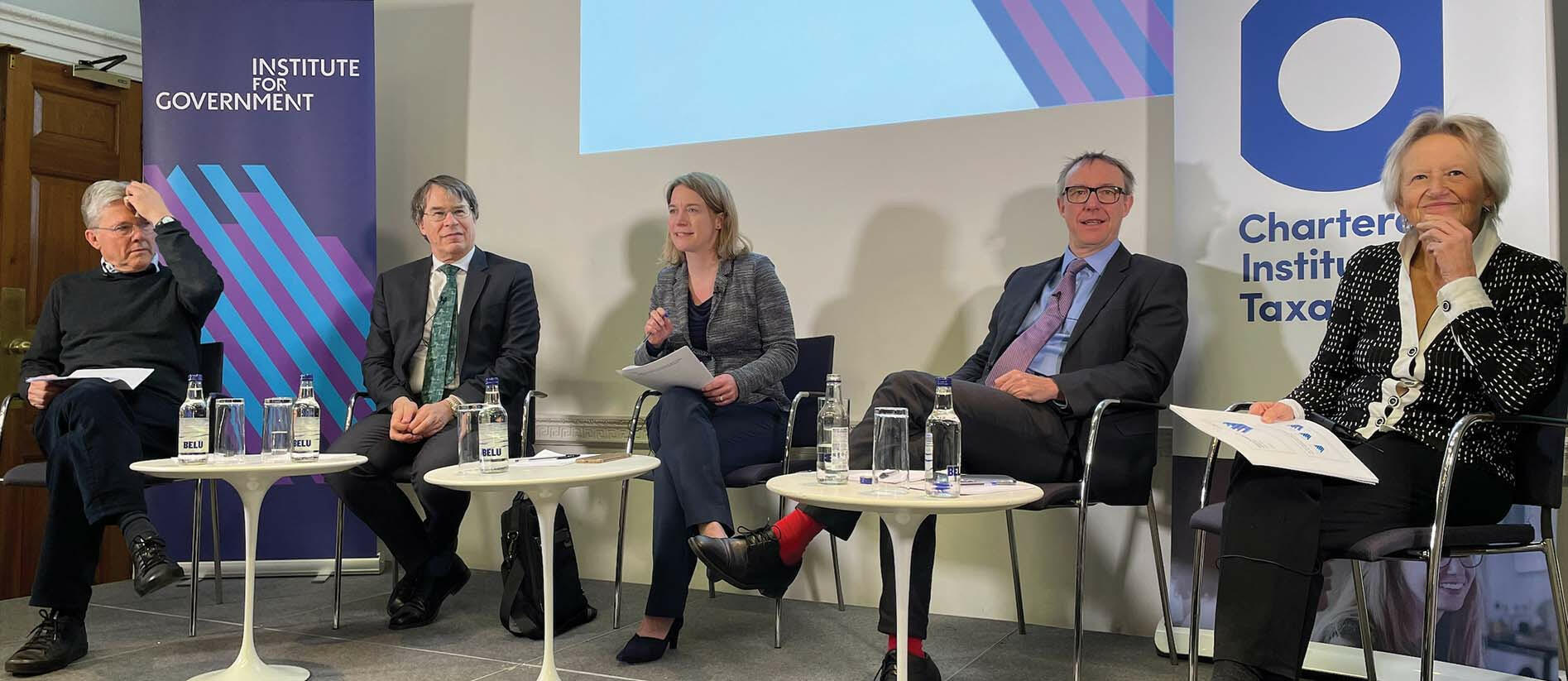CIOT debate with IFS and IfG: Have we made Budgets Better?

Economic shocks and political instability have led to ‘regression rather than progress’ in tax policy making since the publication of the ‘Better Budgets: Making tax policy better’ report six years ago, say some of its authors. A debate hosted by CIOT, IfG and IFS – who jointly published the report – asked again how Budgets can be improved.
The Better Budgets report was published jointly by CIOT, the Institute for Government (IfG) and the Institute for Fiscal Studies (IFS) in January 2017, and the three institutes hosted a debate on 6 March to consider progress on the agenda it set out.
Welcoming guests to the debate, CIOT chief executive Helen Whiteman said the origins of the report were in an event the CIOT co-organised in 2015: ‘All the speakers had critiques of the tax policy process from different perspectives and, of course, had their share of differences. But there were some unmistakable common threads. At the heart of some of these was the idea that when it came to tax policy, governments should try to do less but do it better.’
Based on extensive interviews with tax policy stakeholders, the Better Budgets report concluded that the tax policy making process was not fit for purpose and that – to reduce taxpayer confusion, cut down costly errors and avoid embarrassing U-turns – the government must change the way it makes tax and budget decisions.
Fiscal events and tax proliferation
Opening the debate, IfG’s Jill Rutter – the report’s lead author – said that then Chancellor Phillip Hammond’s commitment to holding just one fiscal event a year was the first ‘big win’ from the report, but that has since fallen away under his successors. She added that tax measures have continued to proliferate in recent years, though some of these were a result of the ‘unprecedented problems’ caused by Covid and the energy shock.
Bill Dodwell, who co-authored the report during his time as CIOT President, agreed on the exceptional nature of some of the measures, saying: ‘Handing out money on Covid, you call it a fiscal event but there’s not much law that comes from it.’
More active consultation
Rutter said that more still needs to be done around consultation on tax issues, adding that it was ‘not clear how welcome internal challenge is’. She said that while the scrutiny of Finance Bills has not improved, the Treasury select committee ‘is engaging a bit more on tax’.
Dodwell agreed that ‘any form of external input’ is absent from the process, suggesting that if reviews of proposed new policy could be commissioned before the policy was devised, it could flesh out the issues, allowing ministers to ‘take what they want’.
Long-term strategy and roadmaps
Paul Johnson of the IFS – another report co-author – said it remains difficult to have a coherent plan, given the number of chancellors and prime ministers the country has been through in recent years. ‘Exactly what the government wants I don’t really know – and it’s that not knowing where the direction is that tells you something about the lack of strategy.’ He said that the Treasury compares unfavourably with other parts of government, which ‘have strategy coming out of our ears’.
He blamed the ‘dysfunctional process’ of Budgets, with Sir Edward Troup – formerly of HMRC – agreeing that the ‘theatre’ of Budget Day ‘does encourage that behaviour’. He added: ‘If you had a more consultative process then that would not happen.’
Johnson questioned why tax policy was made so separately from other policy. Troup replied that there was a ‘bright line’ between tax and the rest of government policy, which is about paying out money rather than collecting it, and that changing this would be ‘completely impossible and very damaging’ to the tax system.
Ten steps to creating Better Budgets
- Stick to the commitment to a single principal annual fiscal event and cut down Budget measure proliferation
- Establish clear guiding principles and priorities for tax policy
- Extend the road-map approach
- Start consultation at an earlier stage
- Develop more active approaches to consultation
- Prepare the ground for future reform – and engage the public
- Address the perceived capability gap around tax policy making
- Overhaul internal processes
- Enhance Parliament’s (and the public’s) ability to scrutinise tax proposals
- Institutionalise and enable evaluations of tax measures
Read the full report on the debate or watch a recording: tinyurl.com/BetBud23


